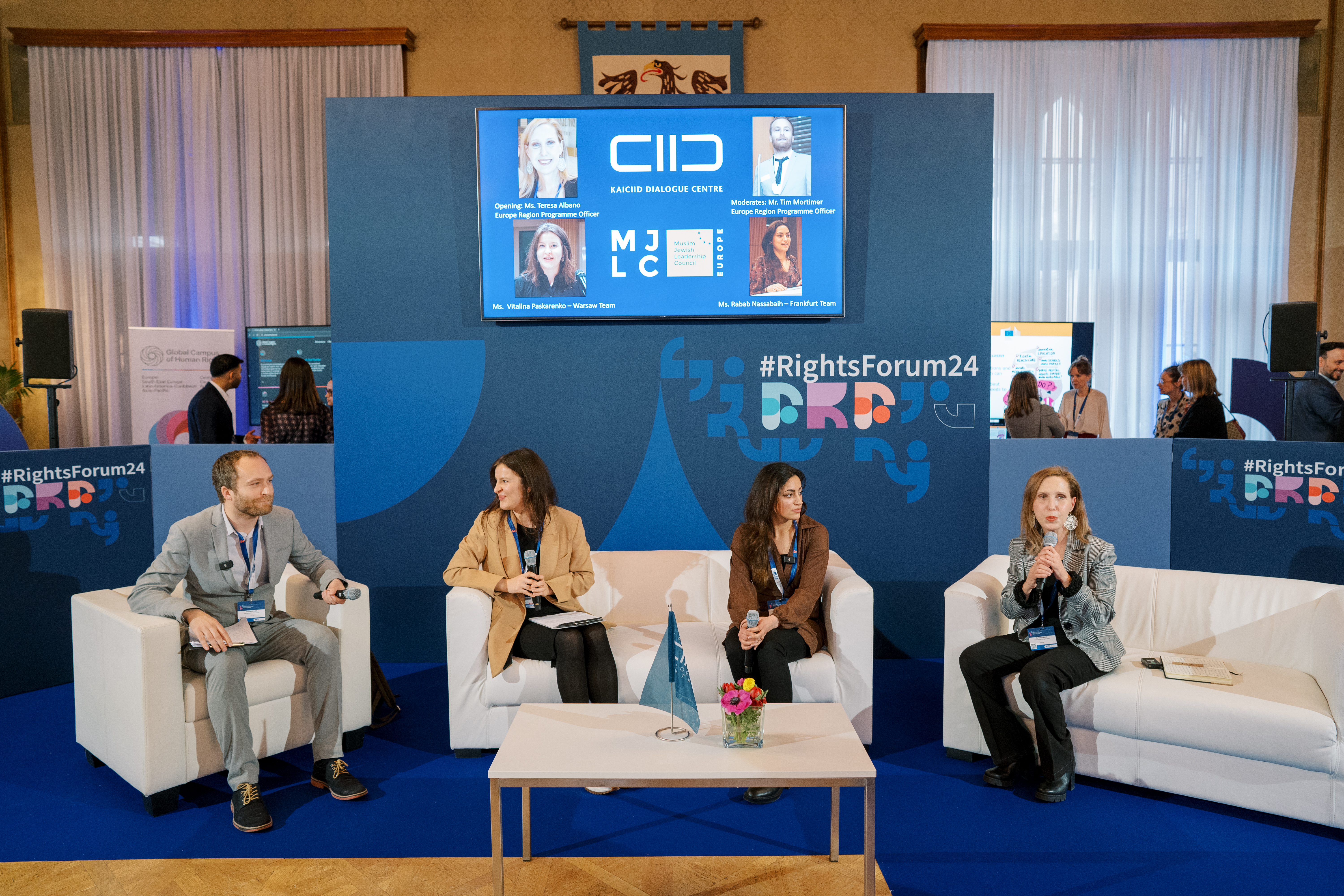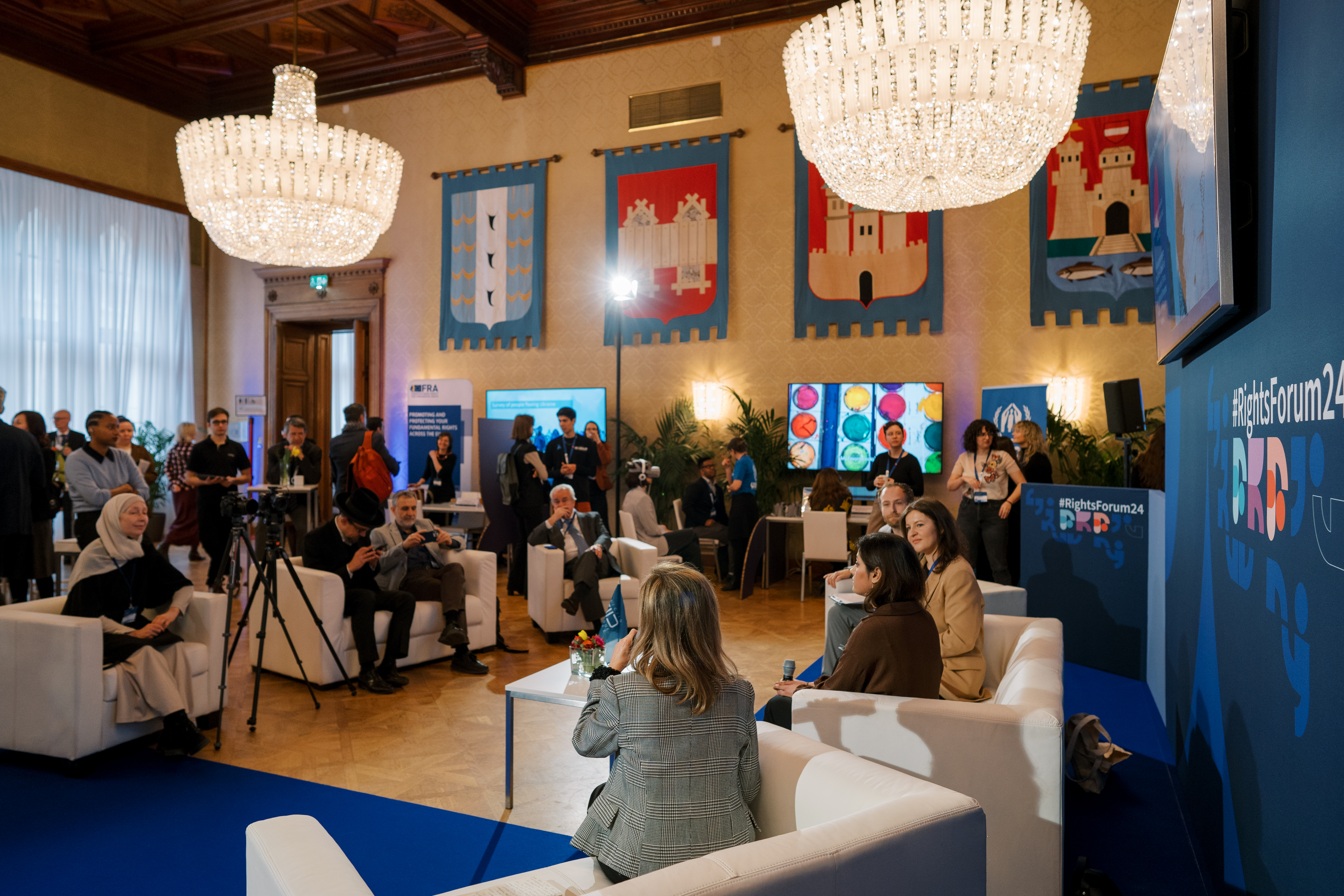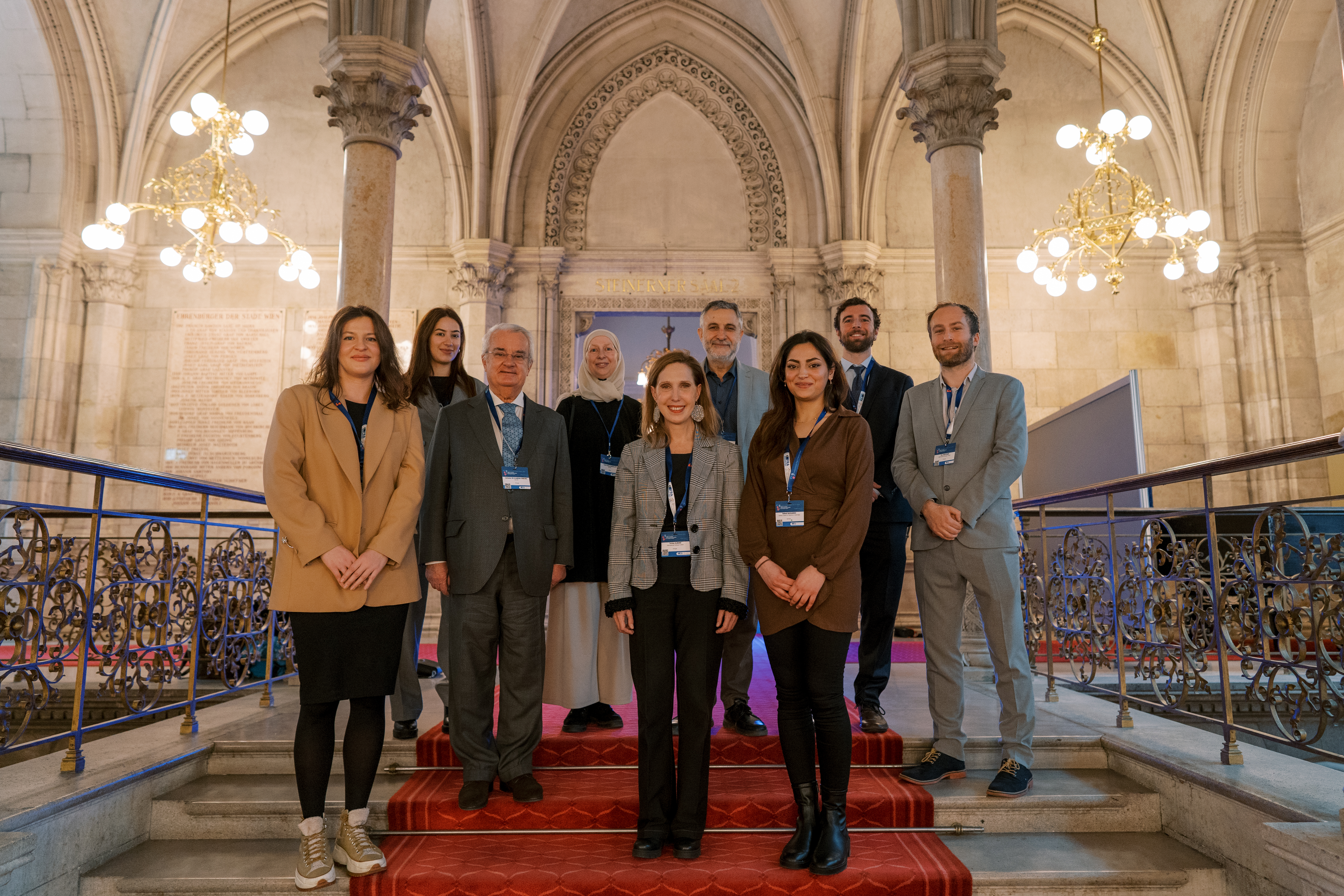
What does it take to develop bonds of friendship between young Jews and Muslims in a time when religion appears to be at the heart of fragmentation, suspicion and conflict? What does it mean to walk on a path towards trust and the renewal of mutual understanding across faiths?
The establishment of the Muslim-Jewish Leadership Council (MJLC) in 2016 - a Europe-wide coalition between 46 Imams and Rabbis - represented a forward-looking tool to foster solidarity and provide a tangible sign of trust-building and dialogue. Today, the MJLC Ambassadors Programme, involving young Jewish and Muslim community leaders, moves a step forward in resisting divisions and polarisations, representing the lifeblood for more cohesive communities in Europe. By providing a platform for their voices and supporting their projects, the International Dialogue Centre – KAICIID - and MJLC join their efforts to equip young leaders with the skills and opportunities to effectively cooperate and enact real change within their communities.
Thanks to a cross-generational collaboration with established religious leaders who mentor the young Ambassadors, the Programme offers a path for mutually enriching relations while a new generation of faith-inspired change-makers shape local initiatives that re-imagine the way religious communities share physical and emotional spaces.
In the spirit of shared enthusiasm for interfaith work, the event “Empowering Collaborations”, hosted at the Fundamental Rights Forum in Vienna on 11 March 2024 and organized jointly by KAICIID and MJLC, was the opportunity to express the MJLC Ambassadors’ willingness to engage in a cultural shift. Two young women, Vitalina Paskarenko - a Jewish Ukrainian living in Warsaw, and Rabab Nassabaih - a Muslim German, with a Lebanese background living in Frankfurt, knitted a colourful tapestry of reflections and feelings about being the pilot cohort of the Ambassadors’ programme, prompted by the thoughtful questions of MR. Tim Mortimer, KAICIID Europe Region Programme Officer. Their stories were not just about events or projects but about the transformative journey of individuals and communities moving towards more trustful relations.

Nurturing this young generation of interfaith leaders is pivotal to bridge the gap in shared values and common principles that is eroding social cohesion in Europe. With 85% of the global population adhering to a religious or spiritual tradition, religion is a key factor that shapes the societal transformations of today, with profound implications on how people think, act, or do not act. No other force is rooted more deeply in the collective human consciousness.
The stories of Vitalina and Rabab stand as a testament to the transformative power of dialogue and the hope it holds for a world marked by peace, justice, and understanding. The Fundamental Rights Forum offered the ideal setting to explore "Empowering Collaborations", coherently framed under the theme “From Erosion to Empowerment: Protecting Democracy and Civic Space in Europe”. The event was more than just a meeting of minds; it was a celebration of the shared humanity that binds us all. Meaningfully, the conversation closed with a thoughtful reflection about what it means to be European. In their words, Vitalina and Rabab recognized that the values of respect for human dignity, freedom, democracy, and equality – enshrined in Article 2 of the Lisbon Treaty that established the European Union - are both the pre-condition and the common thread that allow them to reconcile harmoniously apparent competing identity facets.
As the Ambassadors Programme unfolds, the next meeting “Young Voices of Hope in Times of Division” will be hosted in Sarajevo on 19-22 May 2024 where the second iteration of the programme will be launched. By connecting with Bosnia and Herzegovina’s complex history of religion, conflict and dialogue, and in light of the pressing need for Muslim-Jewish solidarity in Europe amidst the current context, the event will offer new insights into building trust, bringing hope and catalyzing meaningful change in challenging times. Gathering policymakers, local authorities, civil society and international organizations together with young leaders will provide the International Dialogue Centre and the Muslim-Jewish Leadership Council one additional opportunity to grow the community of voices advocating for the enduring power of empathy and dialogue.

As these young leaders continue their journey, the MJLC Ambassadors Programme serves as a beacon of hope, illuminating the path towards communities where religious and cultural differences are bridges, not barriers. "It's not just about dialogue; it's about being grounded in dialogue and turning it into actions that benefit our communities and society as a whole", Vitalina and Rabab affirmed together. These are not futuristic talks, youth are not the future – youth are here, now, at this moment. And they are offering inspiration for a present of reconciliation and peace for all of us.